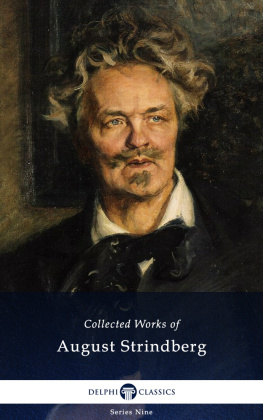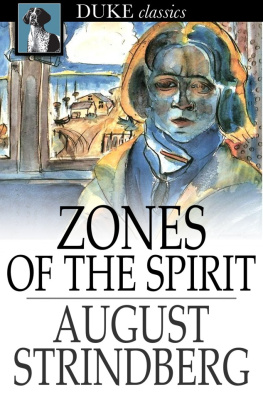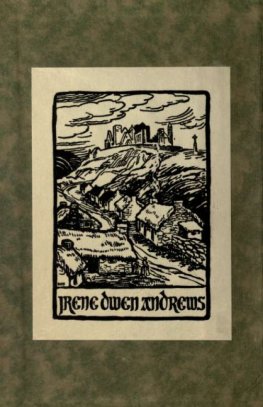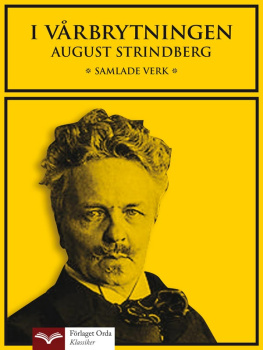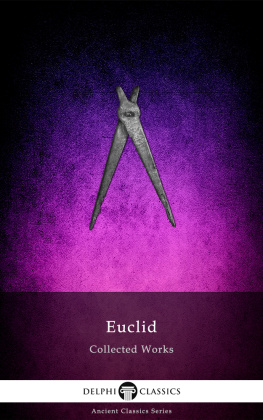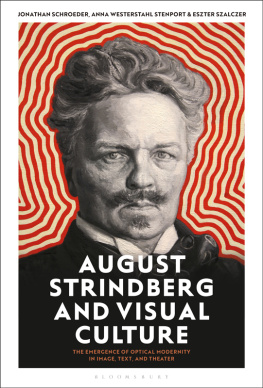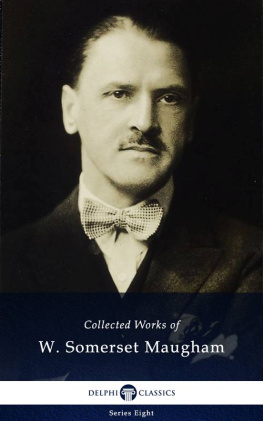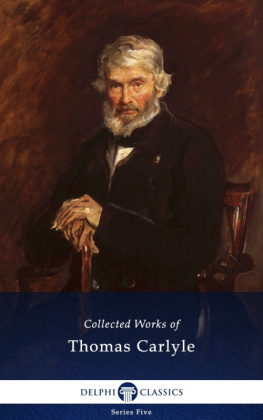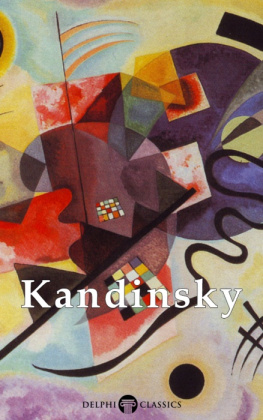
The Collected Works of
AUGUST STRINDBERG
(18491912)

Contents

Delphi Classics 2018
Version 1


Browse our Main Series

Browse our Ancient Classics

Browse our Poets

Browse our Art eBooks

Browse our Classical Music series

The Collected Works of
AUGUST STRINDBERG

By Delphi Classics, 2018
COPYRIGHT
Collected Works of August Strindberg

First published in the United Kingdom in 2018 by Delphi Classics.
Delphi Classics, 2018.
All rights reserved. No part of this publication may be reproduced, stored in a retrieval system, or transmitted, in any form or by any means, without the prior permission in writing of the publisher, nor be otherwise circulated in any form other than that in which it is published.
ISBN: 978 1 78656 109 1
Delphi Classics
is an imprint of
Delphi Publishing Ltd
Hastings, East Sussex
United Kingdom
Contact: sales@delphiclassics.com

www.delphiclassics.com
Interested in classic theatre?

Explore Playwrights at Delphi Classics
The Plays

Nineteenth century Stockholm August Strindberg was born in Stockholm on 22 January 1849

Riddarholmen, a small islet in central Stockholm, forming part of Gamla Stan, the old town, where the playwright was born.
The Outlaw

Translated by Edith and Warner Oland
The Outlaw was first staged on 16 October 1871 at the Royal Theatre, Stockholm and was published five years later. Strindberg began writing the one-act play in the winter of 1870 and completed it by the late summer of 1871.
In September 1870, his play In Rome about the famous Danish sculptor, Bertel Thorvaldsen, premiered at the Royal Theatre. It was well received by critics, but Strindberg was disappointed with the work and did not consider it a success. He was attending Uppsala University during this period, but becoming increasingly frustrated and disillusioned with his studies. He ultimately decided to leave the university in the spring of 1872 without graduating. In his memoirs, the author stated that his next play had been inspired by Bjornstjerne Bjornsons, 1857, one-act play, Mellem Slagene .
The Outlaw was not especially well received by critics, but it was fully embraced by the King of Sweden, Charles XV, who enjoyed the play so much, he summoned Strindberg to meet him. The King offered Strindberg financial assistance with his university fees, which the struggling playwright gratefully received. The play is set in Iceland and is centred on a Gunlod, a young woman, who is forced to confront her father, Thorfinn, in order to live the life she believes is right. The central conflict of the work is between Gunlods Christian faith and her fathers pagan beliefs. She is terrified to defy and anger Thorfinn, who is a fearsome and unyielding man, but she cannot deny her new faith or her adoration and desire for her Christian lover, Gunnar.

Strindberg in 1874
CONTENTS

Charles XV of Sweden
CHARACTERS

THORFINN, Erl of Iceland
VALGERD, his wife
GUNLD, their daughter
GUNNAR, a Crusader
ORM, a minstrel, foster brother to Thorfinn
A THRALL
A MESSENGER
THE OUTLAW

Action takes place in Iceland.
[SCENE A hut, door at back, window-holes, right and, left, closed by big heavy wooden shutters. Wooden benches against walls, the high bench, a sort of rude throne, at left. The uprights of this high beach are carved with images of the gods Odin and Thor. From the wall beams hang swords, battle axes and shields. Near the high bench stands a harp. Gunld stands at an open window-hole peering out; through the opening one gets a glimpse of the sea lighted by the aurora borealis. Valgerd sits by the fire, which is in the middle of the room, spinning.]
VALGERD. Close the window-hole.
[Gunld is silent.]
VALGERD. Gunld!
GUNLD. Did you speak, mother?
VALGERD. What are you doing?
GUNLD. I am watching the sea.
VALGERD. When will you learn to forget?
GUNLD. Take everything away from me but memories!
VALGERD. Look forward not back.
GUNLD. Who reproaches the strong viking who looks back when he is quitting his native strand?
VALGERD. You have had three winters to make your farewell.
GUNLD. You speak truly three winters! For here never came a summer!
VALGERD. When the floating ice melts, then shall spring be here.
GUNLD. The Northern Lights melt no ice.
VALGERD. Nor your tears.
GUNLD. You never saw me weep.
VALGERD. But I have heard you. As long as you do that, you are a child.
Next page
